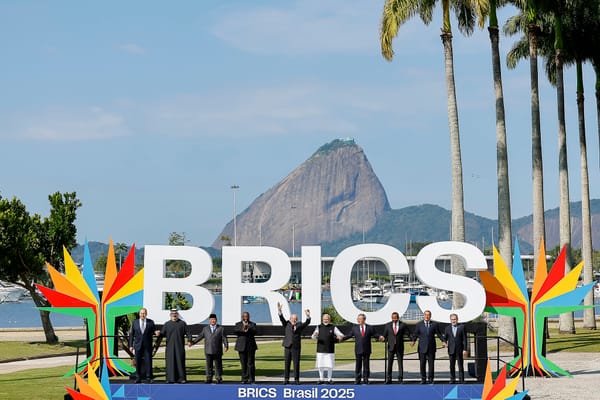
Malaysia tightens US AI chip exports amid China scrutiny
Malaysia has imposed mandatory trade permits for exports, transshipments and transits of US-origin high-performance AI chips, aligning the third-largest economy in Southeast Asia (SEA) more closely with the superpower's tech control policies.
The Malaysian Ministry of Investment, Trade and Industry said the change was necessary to close enforcement gaps in the Strategic Trade Act 2010 and ensure that Malaysia was not used as a backdoor transit route for restricted dual-use technologies.
Controls target transshipments and grey flows
The ministry said on 14 July that the permit requirement would apply immediately to “high-performance electronic computing chips of US origin”, including items passing through Malaysian ports or free trade zones, news agency Reuters reported.
For items not yet listed as strategic under the current framework, the ministry said companies must provide 30 days’ prior written notification and may be subject to permit requirements pending review.
“This is a safeguard to protect Malaysia’s status as a responsible trade partner,” the ministry said in a statement issued on 14 July. “Firms found violating these controls will face legal action.”
The move follows weeks of scrutiny after a Reuters investigation in June linked Malaysia-assembled servers to restricted US chips later discovered in China. The Singaporean intermediary involved is currently under investigation for transshipping unauthorised technology via Southeast Asian ports.
Pressure builds ahead of US tariff deadline
The timing of Malaysia’s action coincides with a broader recalibration in ASEAN amid rising US pressure to tighten export controls and restrict Chinese tech access. US President Donald Trump’s administration has signalled that tariffs of 25%–36% on Chinese-origin goods re-exported via ASEAN will take effect from 1 August.
The US has directly urged Malaysia and Vietnam to improve chip tracking mechanisms, South China Morning Post reported. In response, Malaysia said it would fast-track updates to its Strategic Trade Act to expand the list of controlled items and require additional disclosures from electronics exporters.
“The permit rule reflects Washington’s growing influence over tech policy in Southeast Asia,” South China Morning Post wrote on 15 July, citing diplomatic sources involved in trade coordination.
Data centres, export infrastructure in spotlight
Malaysia’s decision is likely to raise compliance expectations across the region, particularly in Singapore and Thailand, which have emerged as data centre and AI infrastructure hubs.
The Singaporean Trade and Industry Ministry has not introduced equivalent export controls but is conducting a review of chip re-export practices, the financial daily Business Times Singapore reported on 17 July. Singapore remains one of the region’s largest logistics hubs for server equipment, and government-linked tech investors are increasing internal risk audits, the outlet said.
Vietnam, meanwhile, is assessing changes to its export screening regime. The Vietnamese Information and Communications Ministry is working with customs authorities to implement a digital tracking system for sensitive technology shipments, the Vietnam Investment Review reported on 17 July.
“The window for strategic ambiguity in regional chip trade is closing,” said Nguyen Anh Dung, a tech policy researcher at Hanoi’s Institute for Strategic Studies. “Each ASEAN state will have to decide how much compliance they’re willing to demonstrate.”
Industry supports risk-based compliance
Industry groups said the move could introduce modest delays in customs clearance but ultimately support long-term investor confidence.
“The imposition of trade permit requirements helps ensure Malaysia is not used as a transshipment point for controlled technologies,” the Malaysian Semiconductor Industry Association said.
The Malaysian government had not detected illegal chip smuggling but acted pre-emptively to prevent enforcement gaps, the Malaysian news agency Bernama reported. “We are strengthening our due diligence systems and compliance expectations in line with global standards,” the ministry said.
US footprint grows in SEA chip corridors
The policy shift reflects deeper US engagement in Southeast Asia’s semiconductor supply chains, where Malaysia remains a key back-end assembler. US trade envoys have stepped up bilateral pressure on ASEAN economies to monitor high-performance chip flows more strictly, news agency Bloomberg reported on 16 July.
Singapore and Vietnam are also in bilateral talks with Washington to clarify permissible dual-use flows. Industry sources told Nikkei Asia that US officials want coordinated export screening across major Southeast Asian ports by early 2026.
Malaysia is also negotiating tariff carve-outs with the US that may depend on compliance with export restrictions. The Malaysian Investment, Trade and Industry Ministry said it would continue to consult with industry to refine the Strategic Trade Act and ensure legal clarity for exporters.




